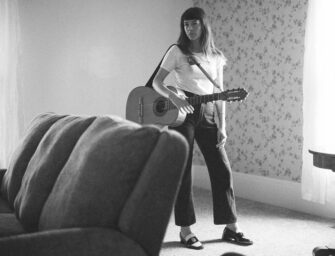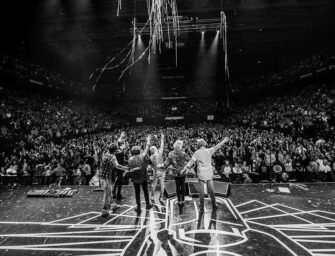
A singer-songwriter who’s been at the top of the tree and fallen off – but who’s ready to climb back up again
 hat do you do if you’ve been signed to a major, had UK Top 5 and US Top 20 singles, seen your album go gold… and then been dropped by your label? The answer, if you’re Billie Myers, is you go a little bit crazy for a while… and then you get up and start again.
hat do you do if you’ve been signed to a major, had UK Top 5 and US Top 20 singles, seen your album go gold… and then been dropped by your label? The answer, if you’re Billie Myers, is you go a little bit crazy for a while… and then you get up and start again.Born 40 years ago in Coventry to a Jamaican father and British mother, Billie worked in insurance and as a nurse, before being discovered by producer Peter Harris (founder of the Kickin’ Records empire, and son of lover’s rock legend Dennis Harris) in a London nightclub. This led to the recording of her debut album Growing Pains in 1997, and before long she was riding high in the charts on both sides of the Atlantic – but then disaster struck.
Unhappy with lacklustre sales of her second album Vertigo, Universal Music let her go in 2001, and Billie fell into a slough of severe clinical depression. But once friends persuaded her to seek professional help, things started to look up, and now in 2013 she’s back with a new album, Tea & Sympathy, on her own label FruitLoop Records – her nickname for the medication she takes to this day.
Citing inspirations as diverse as Pauline Black, Poly Styrene, Sinead O’Connor, Ian Dury and Joan Armatrading, Billie’s living proof of the power of music to bring hope, which we’re sure is a concept many struggling songwriters out there will identify with. So we got her on the phone to find out more…
Tell us a little bit about your early days, working with Peter Harris…
“He saw me in a nightclub, and he was looking for someone to front a new project and asked if I was interested in doing any singing. So I went along, but it didn’t really work at first – he’s more soul-oriented, and that’s not me. But then one day I was sitting with his daughter, singing her a little song I’d made up for her called Beauty & The Beast, and Peter was like, ‘Why didn’t you tell me you can write!?’. He saw potential in me that I didn’t, and he put me with good people in his studio… and Kiss The Rain came along, and it became a huge success.
“But to be honest, I wasn’t really prepared for it – I didn’t have the confidence, and when something gets that big that quickly, you feel like the shoe could drop at any moment. It’s like having ‘one hit wonder’ tattooed on your arm, and I got quite panicky. And then sure enough the second album didn’t sell, and Universal dropped me, and it sent me reeling for a while. It was a horrible time.”
So that’s when your troubles with depression began?
“Well, yes and no. For the first year or two I was actually feeling quite positive, like things were going to pick up again soon. But then it started to look like they wouldn’t and then I did get very depressed. I’d end up playing chicken in my car on the freeway… and that’s when, luckily for me, my friends dragged me off to a psychiatrist. I was very resistant at first, as a lot of people are, but you know what? In the long term that whole period was a blessing, because it was only then I realised that my whole life, my reality had been kind of… grey and blurry. .
“But once I started taking my ‘fruitloops’, as I call them, I started feeling productive again, and wanting to write and record again. I did a couple of projects that got me performing again, and I had friends around me that were always pressing me forward, and by 2009 I was ready to do another album. I came back to England to record it, because I wanted to be somewhere I felt safe, to work with people I knew.”
 That was in 2009… so how come the album’s only getting a UK release now?
That was in 2009… so how come the album’s only getting a UK release now?
“Well the initial 2009 release was… it was more a low-key, fans-only thing in America. At the time I was doing some voiceover work and acting stuff as well. But that came to an end, so I decided now was the time to put the album out properly here in the UK. It’s the same album, basically… there’s maybe a couple of tracks that have been remixed slightly, but essentially it’s the same album.”
Can you describe some of the lyrical themes on the album?
“Well, Anonymous is all about depression, about feeling alone and isolated… it’s about when you feel desperately lonely, and yet you want to be alone at the same time. Dear God is about a crisis of faith in the midnight hours – I am a convent school girl after all! And then there are songs like I Hope You’re Happy Now, Painfully Happy and Wonderful, all of which are kind of bitter odes to lost loves. So I guess a lot of it’s very autobiographical, for sure.”
And have you found that writing about your experiences helps?
“Definitely. It’s a weird one, because when I’m up on stage singing those songs, I’m reliving things, and sometimes I do well up… but then for me that’s a very powerful place, because every time I sing about those feelings, I let them go just a little bit more. Some songs I’ll look back at and think, ‘God, did I really put that in a song?’. But airing emotions in public is what I do, and I don’t think that’s a bad thing. When it comes to other people’s music, I like to hear raw emotions.”
Do you find it easier to express your feelings in song, than in conversation?
“Without a doubt… my friends tell that if they want to know what I’m thinking, there’s no good asking me, they have to listen to my songs! It’s definitely easier for me to sing and write than it is to discuss things. You could almost say it’s quite shallow in a way, but words are my saving grace – they let me paint my emotions.”
“Authenticity is important”
So what can you tell us about your songwriting technique?
“The main thing is, I don’t actually write songs… I just write and write and write, and songs come out. I don’t censor what I write, I can’t. Sometimes I’ll write all day, and just a couple of lines of that will actually end up getting used.
“And I don’t worry too much about structure… I wish in a way I could write a perfectly structured pop song and write hits for One Direction or something! But that’s not what I do, it’s a different artform. If you listen to someone like Janis Joplin, it’s not perfectly structured by any means. Sometimes she’s behind the beat, sometimes the drummer throws in an extra drum roll… no-one does that any more, and that’s why those records sound so powerful, it’s the energy that comes from a a bunch of people all playing in the same room.”
Is that something you’ve emulated in recording Tea & Sympathy?
“Yes, a lot of it was recorded live in the studio. Or not even a studio – a lot of it was recorded in a warehouse in Portobello Road, with the rain battering on the roof! But I’ve recorded in multi-million-dollar studios before now, so I’ve seen lots of ways of doing things, and this is definitely what works for me. Authenticity is important.”
So what happens next? Tea & Sympathy is on your own label – would you go back to a major if you had the chance, or is it a case of ‘once bitten, twice shy’?
“I would, actually. As long as I had autonomy and was left alone! I’d be a fool if I didn’t. Universal were actually great in that respect – for instance, they never asked me to disguise the fact I’m bisexual, even in the US where that might be seen as problematic in some areas. They always let me be me, so I’ve never begrudged them for dropping me – it’s a business, at the end of the day, and having been in the business and seen how it works, I can understand that.
“So yeah, I’d give it another go, as long as I retained control and didn’t have to just hand over my project and be all ‘three bags full, Sir’. Why not? Tour support and a marketing budget isn’t a bad place to be. I mean, sure, it could happen and it could fail again. But putting it out on my own label and it flopping miserably wouldn’t be a very healthy place for me either!”
“Write until you can’t write any more”
Finally then, any advice for aspiring songwriters out there… or indeed for fellow sufferers from depression who may be inspired to give songwriting a go?
“Well for anyone with depression I’d say the main thing is to surround yourself with people as much as you can. You can’t force creativity, but it can help you can channel your depression. Depression can often help you see things more clearly, more sensitively than a lot of other people, and if you can manage that and make it work for you then go for it.
“As for songwriters generally… write! Write until you can’t write any more, until you’ve exorcised all your demons and you’re emotionally drained. And don’t worry when you can’t… sometimes creativity will leave you for a while. Don’t go thinking it means you’re not a writer any more. I used to, but as I said, I was lucky to have good friends around me, and they’d tell me, no, you haven’t dried up… you’re just percolating for a while.”
Interview: Russell Deeks
Tea & Sympathy by Billie Myers is out on March 18 on FruitLoop Records. To find out more, visit her website






























Related Articles